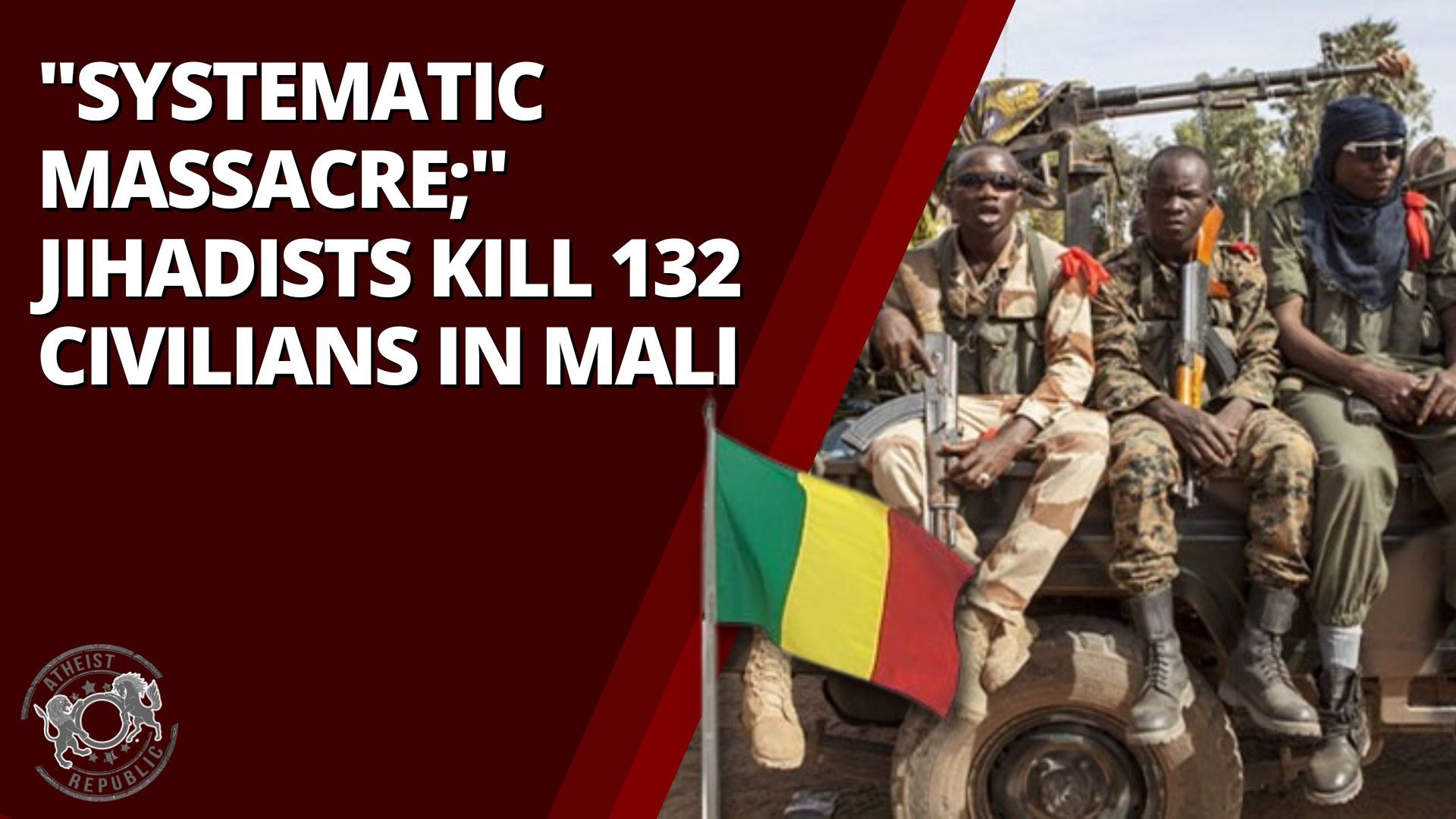
In the Mopti region of central Mali, more than 130 civilians were killed in attacks by suspected Jihadists. Armed men massacred innocent civilians in Diallassagou and the two surrounding towns of Diamwelli and Segue. The government blamed the Islamist extremist group Macina Katiba.
The government of Mali reported 132 deaths in the carnage, attributed to the Macina Kabita, an extremist rebel group affiliated with Al-Qaeda, led by the Fulani preacher Amadou Koufa.
Officials have reported systematic massacres of dozens of civilians perpetrated by the armed men. "They have also been burning huts, houses, and stealing cattle… it's really a free-for-all," said an official who asked to remain anonymous for security reasons. The government determined the exact number of deaths on June 20, Monday.
A local broke down as she said, "I lost my two children - I have nothing to live for. Look for yourselves; we are being martyred, raped, abandoned,"
Nouhoum Togo, leader of a party in the nearby town of Bankass, told the reporters that the clashes with the Jihadists broke out during army operations in the area two weeks ago. The armed extremists then returned on motorcycles as payback. According to him, the attacks happened on June 10. Togo also said that the death toll was higher than what was reported by the government.
The leader of the junta in power in the region since August 2020, Col. Assimi Goita, has declared three days of national mourning and sent a delegation of four ministers to the scene. They expressed their sympathy as they went to the hospitals in Mopti, where several injured people were treated.
Government of Mali declares 3 days of national mourning following attack on 3 villages in the town of Bankass in Mopti, in which 132 people were killed.
According to the govt, the attacks were carried out by the Katiba Macina group. pic.twitter.com/EzzP7ruLun— Samira Sawlani (@samirasawlani) June 21, 2022
The UN released a statement on Twitter stating its concern "about reports of attacks against #civilians in the #Bandiagara region by extremist groups. These attacks have reportedly resulted in casualties and displacement of population."
MINUSMA is concerned about reports of attacks against #civilians in the #Bandiagara region by extremist groups. These attacks have reportedly resulted in casualties and displacement of populations.
— MINUSMA (@UN_MINUSMA) June 19, 2022
According to the UN, the terrorists and the Malian army are responsible for the attacks and ambushes against civilians. The UN started a peacekeeping mission known as MINUSMA in Mali in 2013 to stabilize the country after a tribal separatist movement known as the Tuareg rebellion.
MINUSMA is said to be the UN's deadliest peacekeeping mission, more than 270 peacekeepers have died since its beginning, and three have been killed this month alone.
Since the appearance of the Macina Katiba in central Mali, the region has been subjected to Jihadist violence, the actions of self-defense militias, and inter-community retaliation. Much of the area is beyond the control of the state. On March 23, 2019, more than 160 Fulani civilians were killed in an attack by gunmen in the village of Ogossagou following the government’s crackdown on Islamist terror cells.
Mali has been plagued by jihadist violence for years. An Islamist uprising began in the country in 2012 and spread to the neighboring countries of Burkina Faso and Niger. Thousands of soldiers and civilians have already been killed in the conflict. Since the coup last year, the country has been led by a transitional military government that is said to maintain close ties with Russia.
BREAKING: Fulani Jihadists massacre 132 persons in Mali. Malian president says France arming terrorists & sending them to divide country. Mali recently severed all ties with its colonial power, France in favor of Russia. Burkina Faso appears set to follow Mali’s footsteps. pic.twitter.com/bc1WCsWhxj
— Joseph C. Okechukwu (@jcokechukwu) June 22, 2022
Mali's poorly equipped army, led by the military government since 2020, has repeatedly been accused of human rights abuses. Civilians are also often killed during operations by the Malian military. A UN report from late May listed 320 human rights violations for January through March this year, attributed to government troops.
On June 21, there was a protest march in which civilian residents demanded protection from the state.
